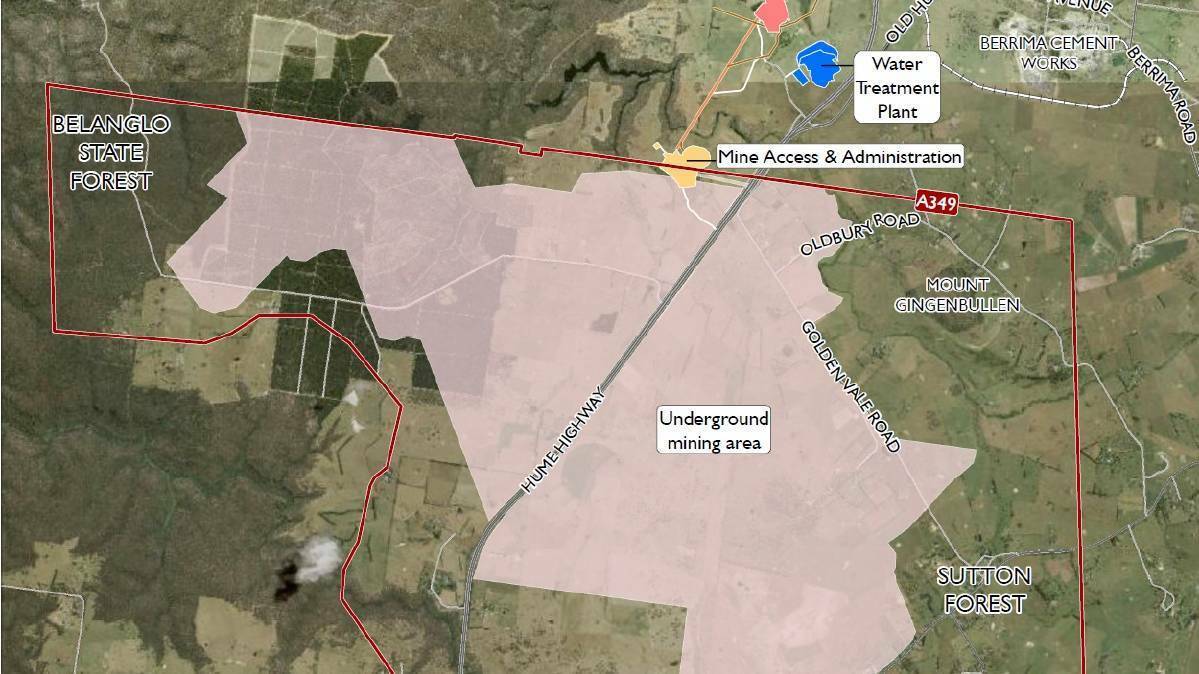
The state's Independent Planning Commission has blocked plans for a new coal mine in the NSW Southern Highlands.
Subscribe now for unlimited access.
or signup to continue reading
The commission found the the potential impacts of the proposed greenfield development "too great to be reasonably managed, and the social risks to the community are high."
Hume Coal Pty Ltd (the Applicant) had sought planning approval to extract approximately 50 million tonnes of run-of-mine coal over 23 years from the new underground mine 7km northwest of Moss Vale.
A rail loop had also been earmarked for the site so that coal could be transported to Port Kembla.
But the Commission has today (Tuesday August 31, 2021) determined to refuse development consent, concluding the $533-million Hume Coal and Berrima Rail Project "does not achieve an appropriate balance between relevant environmental, economic and social considerations."
"The Commission ultimately finds that the stated benefits of the Project do not outweigh the adverse environmental, social and economic impacts," its Statement of Reasons for Decisions reads.
"On the basis of the Material considered as a whole, the Commission has determined to refuse the... Applications."
"The impacts of the Project cannot be reasonably and satisfactorily avoided, mitigated and managed through conditions," it added.
A whole-of-government assessment by the Department of Planning, Industry and Environment in June found the Project was not in the public interest and should be refused: however, the state significant development applications for the Project came to the Commission for determination because of strong opposition from Wingecarribee Shire Council and the local community.
Commissioners Peter Duncan AM (Panel Chair), Professor Alice Clark and Chris Wilson were appointed to make a final decision. They met with the Applicant, Department, Wingecarribee Shire Council, Coal Free Southern Highlands, independent experts in mining engineering and groundwater, and the Department's water group (DPIE Water) as part of their determination process.
The community had its say on the Project during a two-day electronic public hearing hosted by the Panel in July, as well as in written submissions to the Commission.
Key issues raised by those opposed to the Project included mine design; subsidence; groundwater drawdown; risks to surface water, including to Sydney's drinking water catchment area; impacts to local biodiversity; greenhouse gas emissions; impacts to Aboriginal and historic heritage; amenity impacts; adverse impacts to existing industries, including tourism and agriculture; social impacts, including ongoing stress and disharmony associated with the Project; and land use compatibility.
Submissions in support of the Project primarily related to the economic benefits to the region and NSW, including employment generation and flow-on benefits to local businesses; coal as a strategic resource, including for steel production and electricity generation; and the suitability of the mining method for managing subsidence and a range of other environmental impacts.
After weighing all the evidence, Commissioners Duncan, Clark and Wilson deemed that, "based on the potential for long-term and irreversible impacts, and the impacts of the Project on the social and environmental values of the region, the Project is not in the public interest."
In summary, the Commission found:
The Project would result in unacceptable groundwater impacts, based on the following:
- Groundwater modelling is limited by the parameters applied, lack of input data and the level sensitivity analysis. Given these limitations it is uncertain if the model is able to accurately predict the drawdown impacts.
- The modelled impacts should be considered to be the minimum impacts, and even if more data becomes available to feed into the model, the modelled impacts are likely to be worse, not better.
- The physical attributes of the groundwater resource and the density of private bores results in the likelihood of unacceptable groundwater impacts, both generally and in the context of the Aquifer Interference Policy.
- The proposed make-good provisions are impractical due to the number of private bores affected that would require make good agreements and owing to the fact that the Applicant has not been successful in reaching any sort of agreement with the majority of impacted private bore owners.
- An approval would result in significant social distress for the community as many private bore users would be required to enter a prolonged and disruptive negotiation process with the Applicant with respect to access and make good arrangements.
The project also posed an unacceptable risk to Sydney's drinking water catchment because:
- The lack of a contingency plan for surface water management results in a residual risk that untreated water would overflow into the Sydney drinking water catchment.
The Project would result in in adverse social impacts relating to:
- Residents' way of life
- The community
- Surroundings
- Personal and property rights, and
- The community's fears and aspirations.
The Project was incompatible with surrounding land uses because:
- The Project would impact existing and desired future land uses, such as rural-residential, small-scale agricultural and tourism land uses.
- The Project would result in land use conflicts and social impacts that cannot be appropriately managed and would have long-lasting negative amenity impacts on surrounding landholders.
- The Project does not align with the aims and objectives of relevant strategic plans.
The Commission stated that issues relating to the impact on water resources and social impacts were "significant to warrant refusal"
"Further, the Commission finds that the Project's incompatibility with the land use objectives for the area is also reason enough for refusal, and that this incompatibility is exacerbated by the groundwater and social impacts."
We depend on subscription revenue to support our journalism. If you are able, please subscribe here. If you are already a subscriber, thank you for your support.

